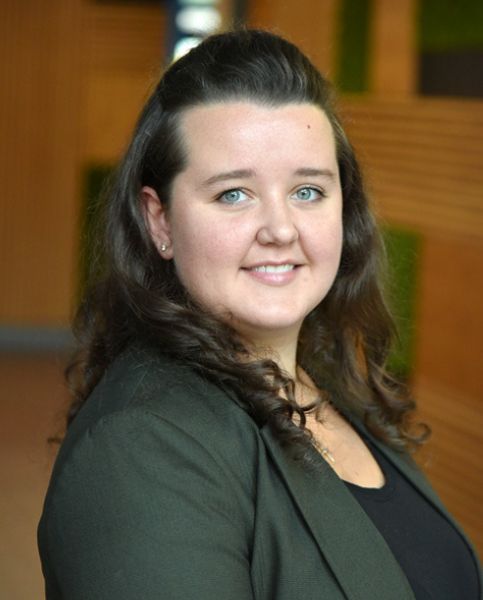Do I Need a Financial Order If I Am Going T...
Pensions on Divorce.
Pensions are often described as forgotten assets in divorce cases.
People are usually more concerned about the property they can see and use immediately, but it is vital to take account of your long-term needs as well. Retirement can seem a long way away, but it is important to plan carefully for your future.
What are the Options when Dealing with Pensions on Divorce?
There are three main ways that pensions are dealt with on divorce, as well as deferred arrangements in appropriate circumstances.
Pension sharing involves one partner’s pension fund being shared between the divorcing partners. This is a common approach in circumstances where one party has a significantly larger pension pot than the other.
For example, in a relationship where one party has taken on the bulk of child-rearing responsibilities, and consequently had periods of time when they made no contributions to a pension, it would usually be considered reasonable that they be entitled to a significant share of their partner’s pension pot. This would be the case regardless of whether any formal commitments to that effect had been made.
Pension sharing essentially creates two pension pots from one existing fund, ensuring that each party has a pension they can draw on in retirement. This pot can be moved to a separate pension scheme (an External Transfer) or transferred to a separate pot within the existing pension scheme (an Internal Transfer). Either way, each party has a separate pension pot in their own name.
As such, pension sharing involves a clean break in financial arrangements, which is often a key consideration when deciding which approach is best for your situation. Once the financial settlement is finalised, you can act independently in respect of your pension pot.
Pension offsetting is where other matrimonial assets are used to balance out the value of one party’s pension fund. Assets such as the family home or family savings can be offset against the value of the pension pot so that each party receives a reasonable overall proportion of the matrimonial assets.
This process allows one partner to retain the whole of their pension pot. Pension offsetting is often used if one party intends to remain living in the family home, meaning that the value of the property is difficult to divide.
For pension offsetting to work, all the assets involved need to be carefully and accurately valued to ensure that each partner receives the correct amount in the settlement. If you are thinking of offsetting your partner’s pension, it is important to consider what your retirement arrangements are and whether this arrangement will leave you suitably provided for. We will support you in securing all the information necessary to achieve the right approach for your circumstances. Beware; pension values, being illiquid (ie not available to encash immediately) are not like for like interchangeable with the value of liquid assets, such as the net proceeds of the family home or savings.
Any pension offsetting arrangement is finalised on divorce, so this also means a financial clean break between you and your former partner. Once the settlement is agreed, you are free to use the assets you receive in the offsetting as you wish.
A pension attachment order is a less common option involving a percentage of one partner’s pension being paid to the other on retirement. This approach, previously known as earmarking, has several problems:
- The non-pension holding party has no control over the pension funds – money is only paid once the pension holder retires.
- If the pension holder dies before retirement age, the former partner may receive nothing.
- Claims under a pension attachment order stop if you remarry.
Coupled with the fact that a pension attachment order does not create a clean break between former partners, these issues mean that pension attachment orders are rare.
In circumstances where one partner is older than the other and will therefore reach retirement age before the other (or has reached retirement age and is already receiving their pension), while the other partner will not be entitled to a pension for several years, deferred arrangements are possible. The deferred arrangement could be a pension sharing agreement or a commitment to pay a cash lump sum to the former partner upon their retirement.
Our Pensions on Divorce Expertise
Our solicitors have years of experience in dealing with pensions on divorce matters. We can guide you through the legalities with ease. Get in touch today and one of our friendly team will be in contact.
Our team has a huge amount of experience helping people make the best decisions in relation to their finances, particularly when it comes to complex, long-term arrangements like pensions. We have been recognised nationally by the Legal 500 2025 and Chambers UK 2025 for our “expertise in financial matters” and have developed a reputation for achieving successful outcomes while operating in a warm, friendly, and approachable way.
Taking the time to understand our clients is central to our approach, an attitude which is exemplified by our signature of the Armed Forces Covenant and our appointment on the NFU’s law firm panel. Providing the right advice on how to deal with your pension arrangements requires a deep understanding of your past and future employment status, as well as that of your former partner. We will strive to ensure that your outcome provides the most appropriate pension arrangements for your circumstances.
Your Pensions on Divorce questions answered
The first step is to accurately value all existing pension plans or schemes held by you and your partner. By following these simple steps, we can support you in making the right choices for your future:
- List all the pensions you and your former partner hold – depending on your, and your former partner’s, employment history, this can take some time. We can support you in completing this important step.
- Accurately value all the pensions – this can be a complicated process, and expert advice is usually necessary. Although most administrators provide pension holders with an annual update on the performance of the pension, which will usually include a cash equivalent transfer value (CETV) or cash equivalent benefit (CEB), this may not accurately reflect the true value of the fund. We will advise you if a pension expert or actuarial report is required.
- Consider your expectations on retirement – many people find it difficult to plan carefully for retirement. Together, or with the aid of an independent financial planner, we will create a realistic plan for your future based on the current value of existing pension funds and your ongoing ability to contribute to a pension.
- Come to an agreement with your former partner – we believe that negotiation and collaboration are the best starting points when it comes to financial claims. We have vast experience advising people on their most effective negotiating position and in conducting negotiations on their behalf.
- Get a financial court order to formally recognise the settlement – a pension administrator cannot put in place any pension sharing arrangement without a court order and the decree absolute of divorce.
People often fail to make the most of their financial claims on divorces because they underestimate the contribution that pensions make to most cases. Even if your marriage was relatively short or the pension was already running before you got married, a pension can still be a relevant asset.
Sometimes people can be put off considering pension arrangements because they seem very complicated, particularly bespoke schemes put together as part of a family business. This is where expert advice is invaluable. We can support you in ascertaining a value of the assets and ensuring that you receive a fair proportion of their value.
A basic State Pension cannot be shared on divorce.
The Additional State Pension can be payable to men born before 6 April 1951 and women born before 6 April 1953. Additional State Pension entitlements can be shared in a financial settlement. These payments can continue until the person remarries or enters another civil partnership.
It is not usually possible to protect a pension in a financial claim. The law requires all assets to be disclosed, and most pension funds are considered relevant assets. There are circumstances where a court may decide that a pension should not be included, but this is rare.
It is possible to use the pension offsetting mechanism to retain full ownership of a pension if you can agree to use other assets to offset the value of the pension. Any assets used to offset the value of the pension need to reasonably reflect its value. This is a complex issue due to the difference between the value of the liquid as opposed to illiquid assets as explained above.
It is possible for a court to adjust a financial settlement in the future if all relevant information about the value of assets is not disclosed.
What our clients say.
Contact the Family Law Team at Lanyon Bowdler
Lanyon Bowdler is a member of the Law Society Family Panel and accredited specialist with Resolution, a national organisation of family lawyers, so you can be sure our solicitors are experienced in all aspects of law in England and Wales.
Our divorce lawyers are approachable and professional, and will always adopt a balanced and practical approach to negotiations, minimising conflict and working to an acceptable outcome for you. Our aim is to achieve amicable resolutions swiftly, but if litigation is necessary we have the experience and know-how to deal with the courts effectively.
Please give us a call for a friendly, confidential, chat about how we can help support you when you or your family need legal advice and representation. Please contact a member of the team or complete our online enquiry form.
By choosing Lanyon Bowdler for family law legal advice, you can rest assured that you have the best legal expertise on hand no matter what the situation. We are committed to providing exceptional levels of client care and will work closely and considerately with you to help find the best outcomes. Our Family Law Solicitors team has great experience in all areas of family law and family mediation.
We have offices in Shrewsbury, Bromyard, Conwy, Hereford, Ludlow, Oswestry and Telford, so are able to act for clients throughout Shropshire, Herefordshire, Mid and North Wales and across the Midlands (including Wolverhampton & Birmingham). As a leading full-service law firm, we are able to represent clients throughout England and Wales.
Meet the team.
Latest knowledge.
Our awards and accolades.
Get in touch.
"*" indicates required fields

 Back
Back



















 Blog
Blog





 Podcast
Podcast








